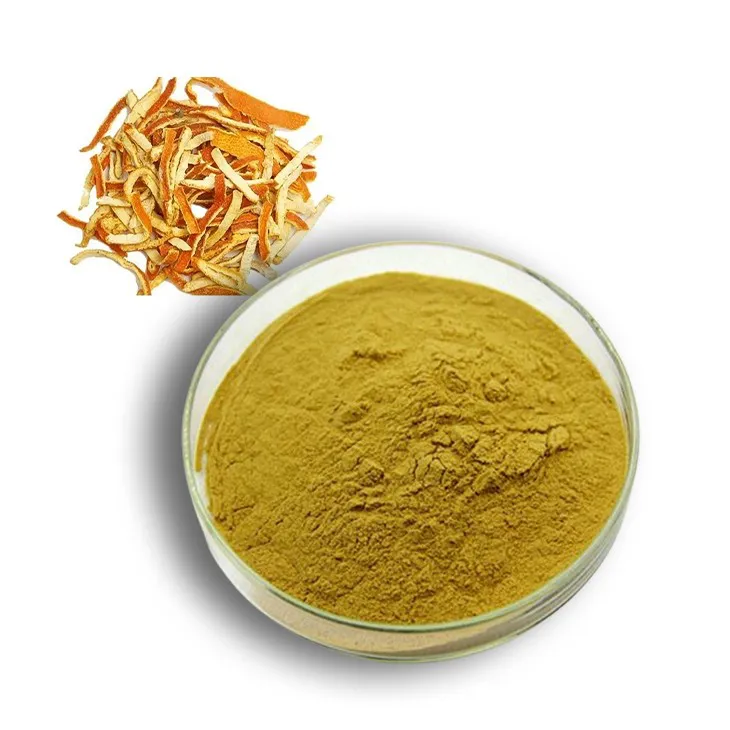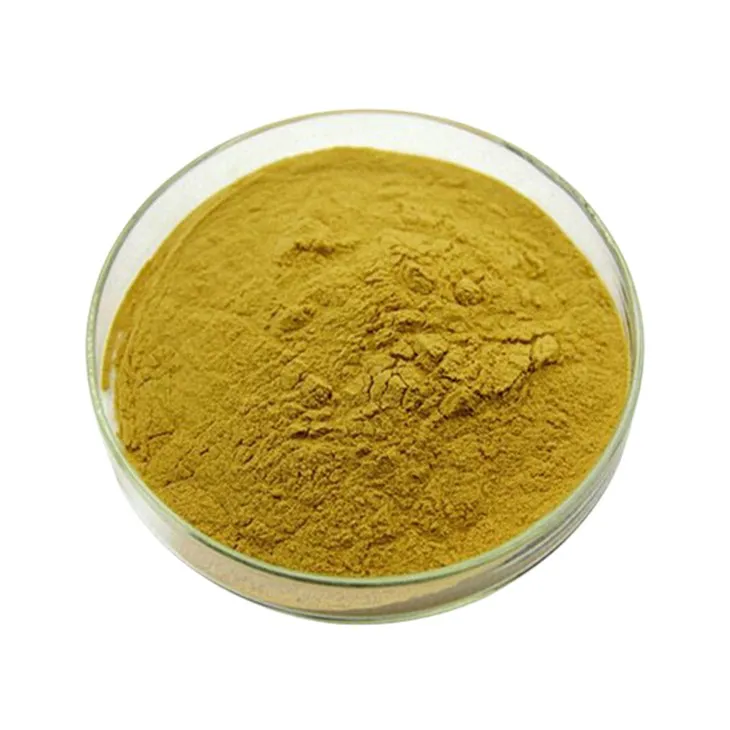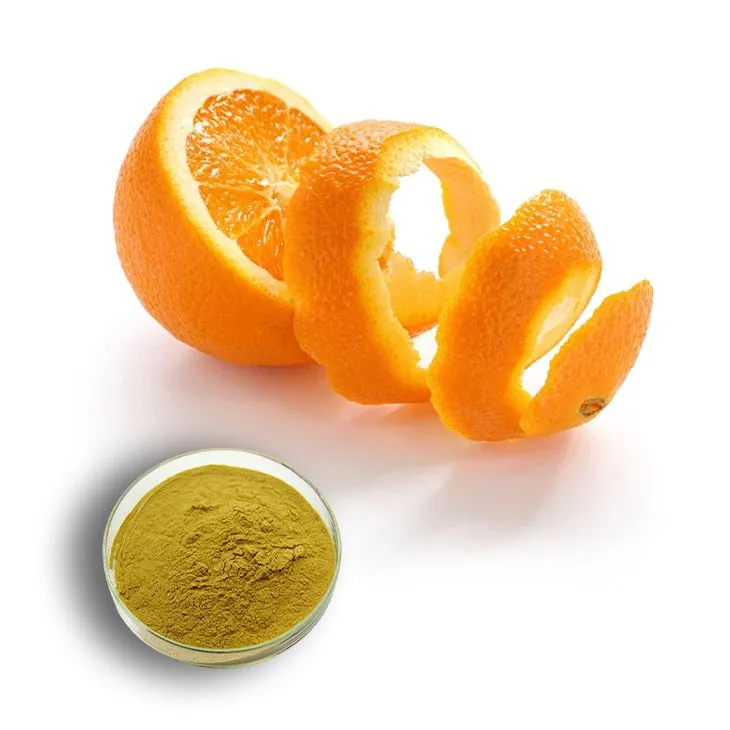- 0086-571-85302990
- sales@greenskybio.com
Hesperidin in Trinidad and Tobago.
2024-12-11

Medical Research Significance
Trinidad and Tobago, a beautiful Caribbean nation, is home to a valuable bioactive compound - Hesperidin, which is found in its citrus peels. Hesperidin has drawn significant attention in medical research. It has shown great potential in the treatment of vascular - related diseases.
Nitric oxide plays a crucial role in blood vessel function. Hesperidin can enhance the production of nitric oxide. By doing so, it is able to improve blood vessel function effectively. This improvement has multiple benefits. Firstly, it can help in reducing blood pressure. High blood pressure is a common health issue worldwide, and finding natural substances like hesperidin that can contribute to its reduction is of great importance. Secondly, the enhanced blood vessel function due to hesperidin can also prevent atherosclerosis. Atherosclerosis is a condition where the arteries become narrowed and hardened due to the build - up of plaque, which can lead to serious cardiovascular problems such as heart attacks and strokes.
The discovery of these properties of hesperidin from Trinidad and Tobago could potentially lead to the development of new drugs or natural remedies. Pharmaceutical companies could explore ways to isolate and purify hesperidin to create medications specifically targeted at vascular - related diseases. Additionally, natural health product manufacturers might be interested in formulating supplements containing hesperidin from Trinidad and Tobago for those who prefer natural alternatives for maintaining cardiovascular health.

Trade and Industry Opportunities
The hesperidin from Trinidad and Tobago presents excellent opportunities in the trade and industry sectors.
As a valuable export commodity, hesperidin has the potential to enter the international market of nutraceuticals and functional foods. The global market for these products is growing steadily as consumers are becoming more health - conscious and are seeking natural ingredients with health - promoting properties.
However, for Trinidad and Tobago to fully capitalize on this opportunity, certain steps need to be taken. Marketing strategies are crucial. The country needs to promote the unique qualities of its hesperidin - sourced from its own citrus fruits - to the international market. This could involve highlighting the purity, the origin, and the potential health benefits associated with it. At the same time, quality control measures must be in place. Ensuring a consistent and high - quality product is essential for building a good reputation in the international market. This includes strict control over the extraction process, storage, and packaging of hesperidin.
Trinidad and Tobago can also build on its existing agricultural infrastructure related to citrus farming. By expanding and optimizing citrus cultivation, the country can support hesperidin production on a larger scale. This would not only increase the quantity of hesperidin available for export but also contribute to the growth of the local agricultural sector. Farmers could be provided with incentives and training to improve their citrus farming practices, leading to higher yields and better - quality citrus fruits, which in turn would result in more hesperidin production.

Social Impact
Promoting the knowledge of hesperidin from Trinidad and Tobago can have a positive social impact, especially in terms of enhancing public health awareness.
Local communities in Trinidad and Tobago can be educated about the benefits of consuming citrus fruits. Citrus fruits are a rich source of hesperidin, and by increasing awareness about this, people can be encouraged to include more citrus fruits in their diet. This can lead to improved overall health as hesperidin offers various health benefits as mentioned earlier in relation to vascular health.
Moreover, the potential of hesperidin - rich products can also be promoted. This could lead to the development of local - based health - related enterprises. For example, local entrepreneurs could start businesses that produce and sell hesperidin - based supplements, juices, or other health products. These enterprises would not only provide products that are beneficial to the health of the local population but also create jobs. Job creation is crucial for the economic development of local communities. It can help in reducing unemployment rates and improving the standard of living.
In addition, promoting hesperidin - related knowledge can also foster a sense of pride within the local community. Knowing that their country is home to such a valuable bioactive compound can encourage local people to support local products and businesses, further strengthening the local economy.

Sustainable Development Aspect
The extraction of hesperidin from citrus peels in Trinidad and Tobago can be an integral part of a circular economy model.
During the extraction process of hesperidin, there are by - products. These by - products can be further processed for other uses. For instance, they can be made into bio - fertilizers. Bio - fertilizers are beneficial for the soil as they can improve soil fertility and structure. This can lead to better citrus growth, which in turn can provide more citrus peels for hesperidin extraction, creating a cycle. Another possible use of these by - products is as animal feed. Using these by - products as animal feed can reduce the cost of animal feed production while also reducing waste.
By integrating hesperidin extraction into a circular economy model, Trinidad and Tobago can reduce waste and environmental impact. Traditional extraction processes may generate a significant amount of waste, but by finding useful applications for these by - products, the country can move towards a more sustainable production model. This is not only beneficial for the environment but also for the long - term economic viability of the hesperidin industry in Trinidad and Tobago.
Furthermore, a circular economy model based on hesperidin extraction can also attract environmentally - conscious investors. These investors are interested in supporting projects that are both economically profitable and environmentally sustainable. Their investment can further boost the development of the hesperidin industry in Trinidad and Tobago, bringing in more resources for research, production expansion, and marketing.

FAQ:
What is hesperidin?
Hesperidin is a bioactive compound mainly found in citrus peels in Trinidad and Tobago. It has various beneficial properties, such as being potentially useful in treating vascular - related diseases.
How can hesperidin in Trinidad and Tobago be used in medical research?
In medical research, hesperidin from Trinidad and Tobago can be used as it shows promise in treating vascular - related diseases. It improves blood vessel function by increasing nitric oxide production, which is beneficial for reducing blood pressure and preventing atherosclerosis. This may lead to the development of new drugs or natural remedies.
What role can hesperidin from Trinidad and Tobago play in trade and industry?
Hesperidin from Trinidad and Tobago can be a valuable export commodity in trade and industry. With proper marketing strategies and quality control, it can enter the international market for nutraceuticals and functional foods. The country can use its existing citrus - farming - related agricultural infrastructure to support large - scale hesperidin production.
How can promoting knowledge of hesperidin from Trinidad and Tobago affect the local community?
Promoting knowledge of hesperidin from Trinidad and Tobago can enhance public health awareness in the local community. Local people can be educated about the benefits of consuming citrus fruits and hesperidin - rich products. This may also lead to the development of local health - related enterprises using hesperidin, creating jobs and improving the local economic situation.
How does the extraction of hesperidin in Trinidad and Tobago contribute to sustainable development?
The extraction of hesperidin from citrus peels in Trinidad and Tobago can be part of a circular economy model. The by - products of hesperidin extraction can be further processed for other uses like bio - fertilizers or animal feed, which helps in reducing waste and environmental impact.
Related literature
- Title: Hesperidin: A Promising Bioactive Compound from Trinidad and Tobago's Citrus"
- Title: "The Potential of Trinidad and Tobago - sourced Hesperidin in Vascular Health"
- Title: "Hesperidin in the Trade and Industry of Trinidad and Tobago"
- ▶ Hesperidin
- ▶ Citrus Bioflavonoids
- ▶ Plant Extract
- ▶ lycopene
- ▶ Diosmin
- ▶ Grape seed extract
- ▶ Sea buckthorn Juice Powder
- ▶ Fruit Juice Powder
- ▶ Hops Extract
- ▶ Artichoke Extract
- ▶ Mushroom extract
- ▶ Astaxanthin
- ▶ Green Tea Extract
- ▶ Curcumin
- ▶ Horse Chestnut Extract
- ▶ Other Product
- ▶ Boswellia Serrata Extract
- ▶ Resveratrol
- ▶ Marigold Extract
- ▶ Grape Leaf Extract
- ▶ New Product
- ▶ Aminolevulinic acid
- ▶ Cranberry Extract
- ▶ Red Yeast Rice
- ▶ Red Wine Extract
-
Hawthorn Extract
2024-12-11
-
Pomegranate Extract
2024-12-11
-
Alisma Extract
2024-12-11
-
Sugarcane Extract
2024-12-11
-
Honeysuckle Pollen
2024-12-11
-
Red Wine Extract
2024-12-11
-
Resveratrol extract
2024-12-11
-
Selenium yeast
2024-12-11
-
Feverfew Extract
2024-12-11
-
Moringa powder
2024-12-11





















